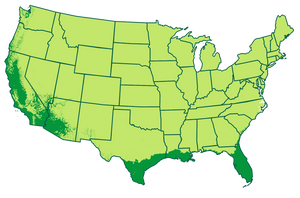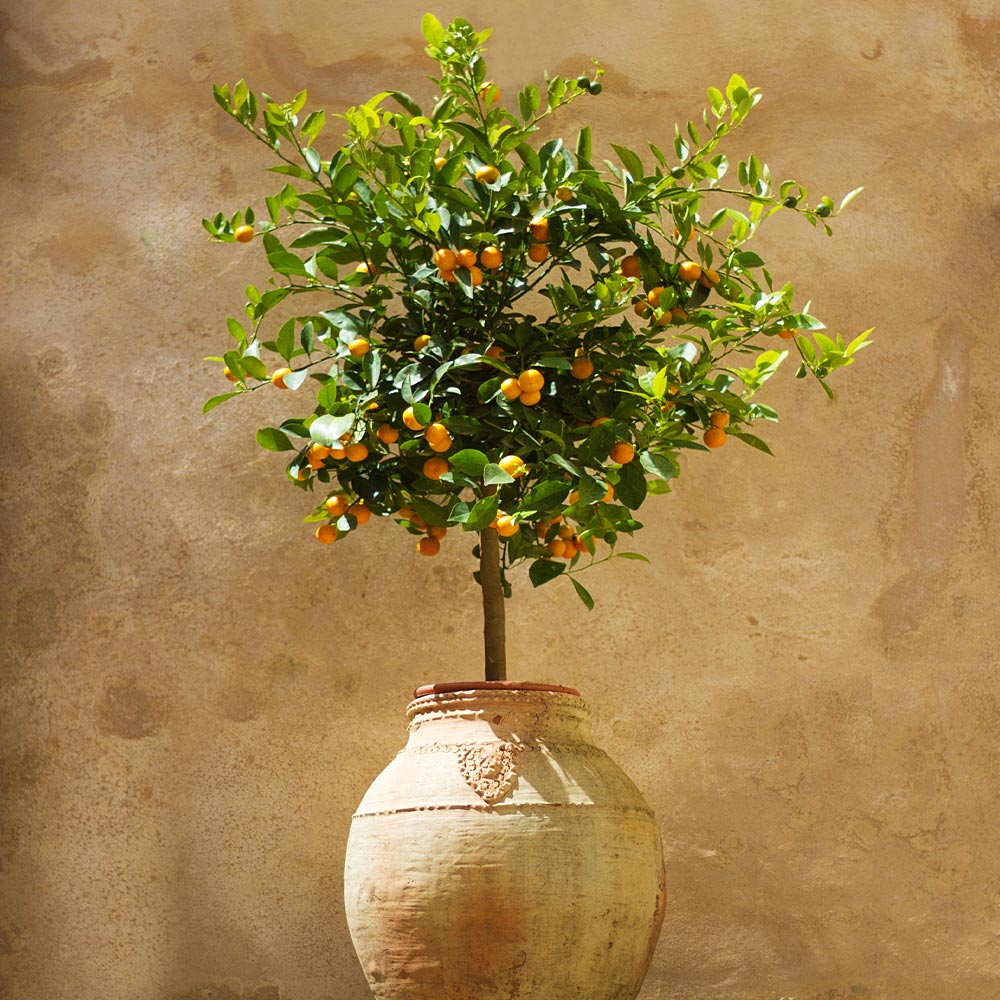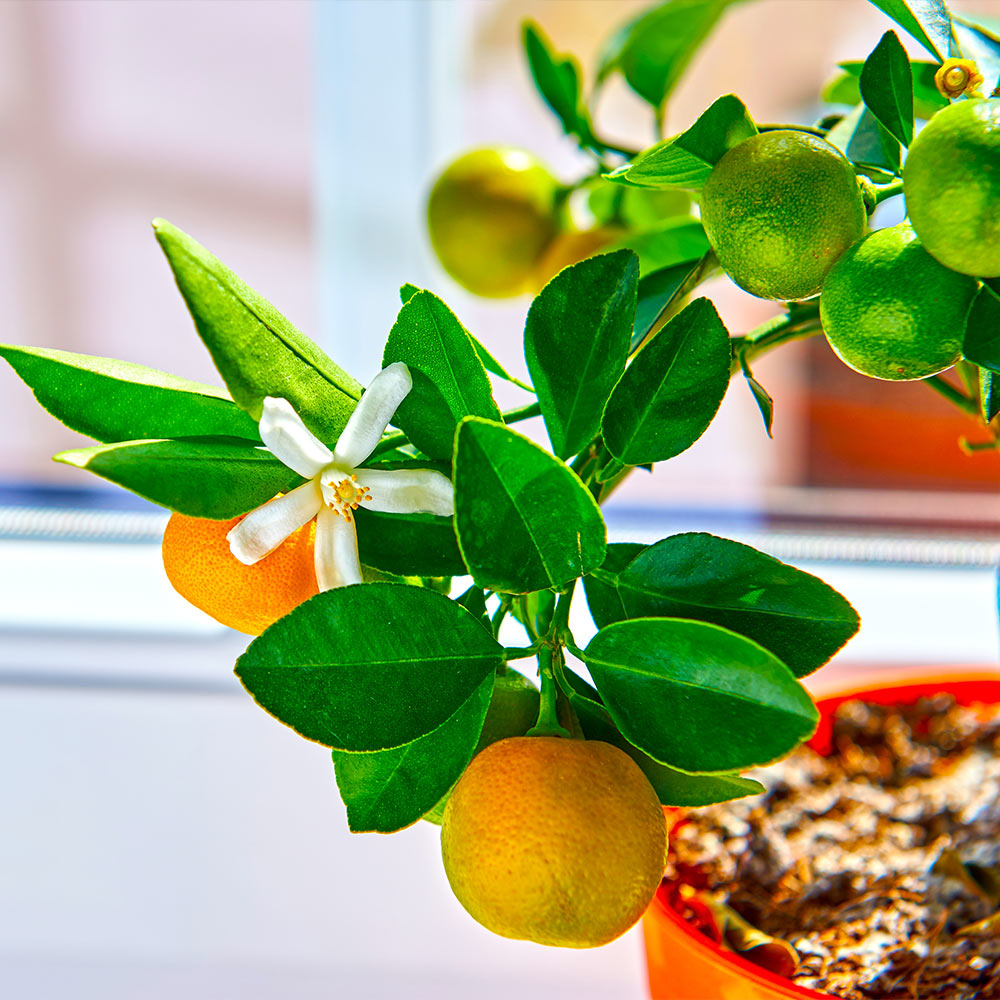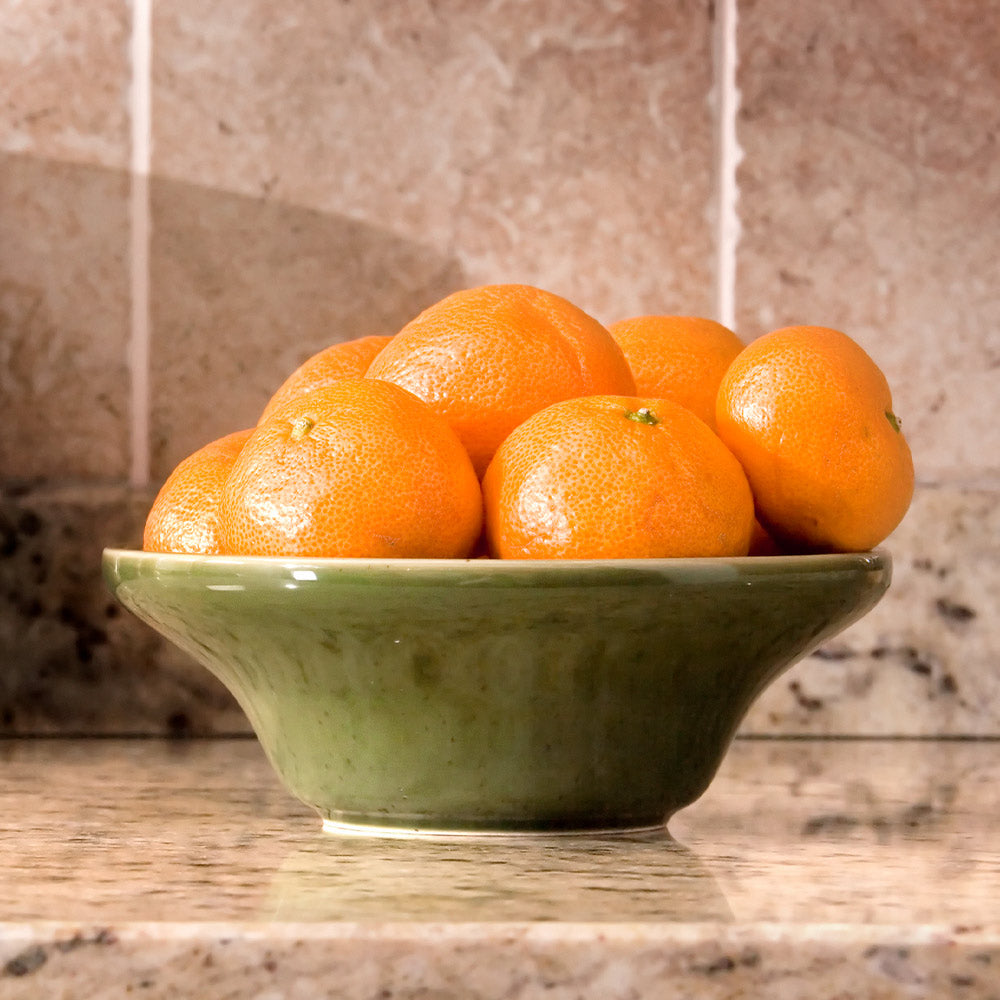* Images shown are of mature plants

Have questions? Talk with our Plant Experts (800) 973-8959
Save 25% on $200+ with code FALL25.
Questions? Call our plant experts: (800) 973-8959
One of the Cold-Hardiest Citrus Trees
Why Calamondin Trees?
There’s nothing like the Calamondin Tree: With fruit that’s a cross between a mandarin and a kumquat, this mini-orange, as it’s dubbed, is wonderfully delicious.
Even better? It can be grown in a container or as a hedge. In colder climates, grow the Calamondin Tree in a container and move it indoors during winter months, or cover your outdoor trees for chilly weather.
Plus, the Calamondin delights with a heavenly scent and several flushes (harvests) of blossoms and fruit throughout the year. The yellow-orange fruit of the Calamondin Tree is about the size of a lime or a tangerine and has a thinner skin than most oranges, making it delectably delicate. It has a lightly tart taste that's perfect for marmalades, juicing, cooking and baking.
With healthful, home-grown flavor and heightened looks, the Calamondin Tree is second to none. Order yours today!
NOTE: This product is specific to Florida. Find Calamondin Trees available in other states here.
Pollination Info
Calamondin Tree Pollination
Calamondin Trees are self-fertile. You will get fruit with only one plant. However, adding an additional Calamondin Tree will drastically increase the size of your crop.
Planting & Care
1. Planting: Choose a location where your tree is going to get plenty of sunlight, around 6 to 8 hours. And ensure the area has well-drained soil.
To plant in a container, choose a pot slightly larger than the shipped container, with plenty of holes in the bottom to allow for drainage. Be sure to plant in well-draining potting soil, preferably recommended for acid-loving citrus plants.
Fill your pot halfway with soil. Remove the tree from its original pot and gently place it in the potting soil. Fill in around the bush with the remainder of the potting soil but leave about an inch from the soil surface to the rim of the pot for easy watering.
Immediately after planting, give your bush a deep watering until water flows from the holes in the bottom of the pot. Finally, place your bush in an area of your home, preferably a south-facing window, where it is going to get plenty of sunlight.
2. Watering: After watering once or twice weekly, allow the top 2 to 3 inches of the soil to dry out completely before watering again.
For best results, stick your index finger into the soil down to about 2 inches. If there is moisture present, hold off on watering until it feels drier at that depth. When you do water your bush, stop once you see it escaping the drainage holes at the base of the pot.
3. Fertilizing: Feed your Calamondin during the warmer spring and summer seasons with a citrus specific fertilizer, such as the one included with our Citrus Care Kit, once every six weeks. During the fall and winter, fertilize once every 2 to 3 months. Make sure to follow the application instructions written on the fertilizer bag.
4. Pruning: Pruning can be done at any time of the year. Make 45-degree angle cuts to remove dead or crossing limbs and also to thin out the bush to allow more light to flow between the branches. After the bush fruits, remove any dead wood and ventilate the center of the bush, and remove suckers as they form/grow from the base.
5. Pollination: Our bush is self-fertile but you can pollinate your indoor bushes by hand using a small, dry, fine-tipped paintbrush. Take your brush and stick it into the center of the bloom, swirling around to collect the pollen on the brush. Go to the next bloom and repeat the process until every bloom has been treated, and repeat the process once daily. Don’t wash the paintbrush until after the blooms have been pollinated. The bloom will fall off naturally and the fruit will begin to form in its place.
Shipping Details
Estimated Shipping Time: Most orders ship immediately. As noted on the website, some items are seasonal, and may only ship in spring or fall. Once your order is shipped, you'll receive an email with a tracking number.
| Amount of Order | Shipping Charge |
|---|---|
| Less than $49 | $19.95 |
| $49 + | FREE SHIPPING! |
Product Details
| Mature Height: | 8 ft. |
| Mature Width: | 5 ft. |
| Sunlight: | Full-Partial |
| Growth Rate: | Moderate Growing |
| Harvest Time: | August-October |
| Botanical Name: | Citrus mitis |
| Does Not Ship To: | AK, AL, AZ, CA, GA, HI, LA, OR, TX |
| Grows Well In Zones: | 3-11 patio / 9-11 outdoors |
| Your Growing Zone: | # |







